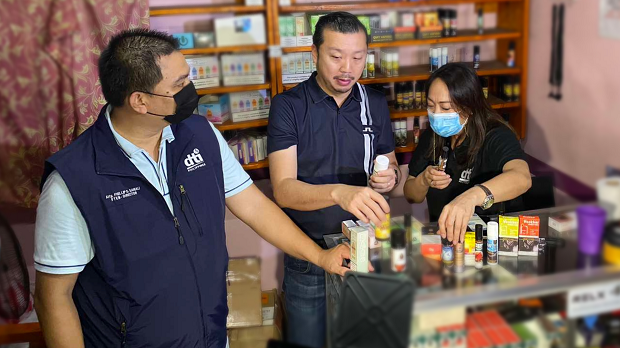Following the government’s heightened enforcement operations against illegal vape products, Department of Trade and Industry (DTI) secretary Fred Pascual has directed his officials to assess the agency’s preparedness in implementing the Vape Law and to identify any equipment needed for testing.
By June 2024, the product registration and other related provisions of RA 11900 will take effect. All importation and manufacturing of vaporized nicotine and non-nicotine products and novel tobacco products shall be required to undergo the DTI mandatory certification process prior to market distribution.
“It is essential to have a well-maintained machinery, up-to-date methodologies, and an efficient laboratory management system to bring vapor products into the market with greater confidence in their safety and performance,” Pascual emphasized.
On Feb. 22, the DTI’s Consumer Protection Group inspected existing vape testing facilities in the Bureau of Philippine Standards laboratory in Cavite.
The inspection evaluated the testing protocols for vapor products and related accessories, including dry cells and secondary batteries.
The team also conducted assessments of various laboratory instruments ensuring the integrity and efficacy of the testing process.
Currently, budgetary constraints prevent the testing facilities from covering HTP consumables, e-liquids for vapor products, and nicotine pouches.
The House Committee on Ways and Means has instructed the DTI and the DBM to secure additional funding in the National Expenditure Program (NEP) to expand the DTI’s testing capabilities.
Moreover, the additional budget will fund more testing facilities for HTP consumables and e-liquids, and enhance DTI’s certification process, which is vital for public safety.




